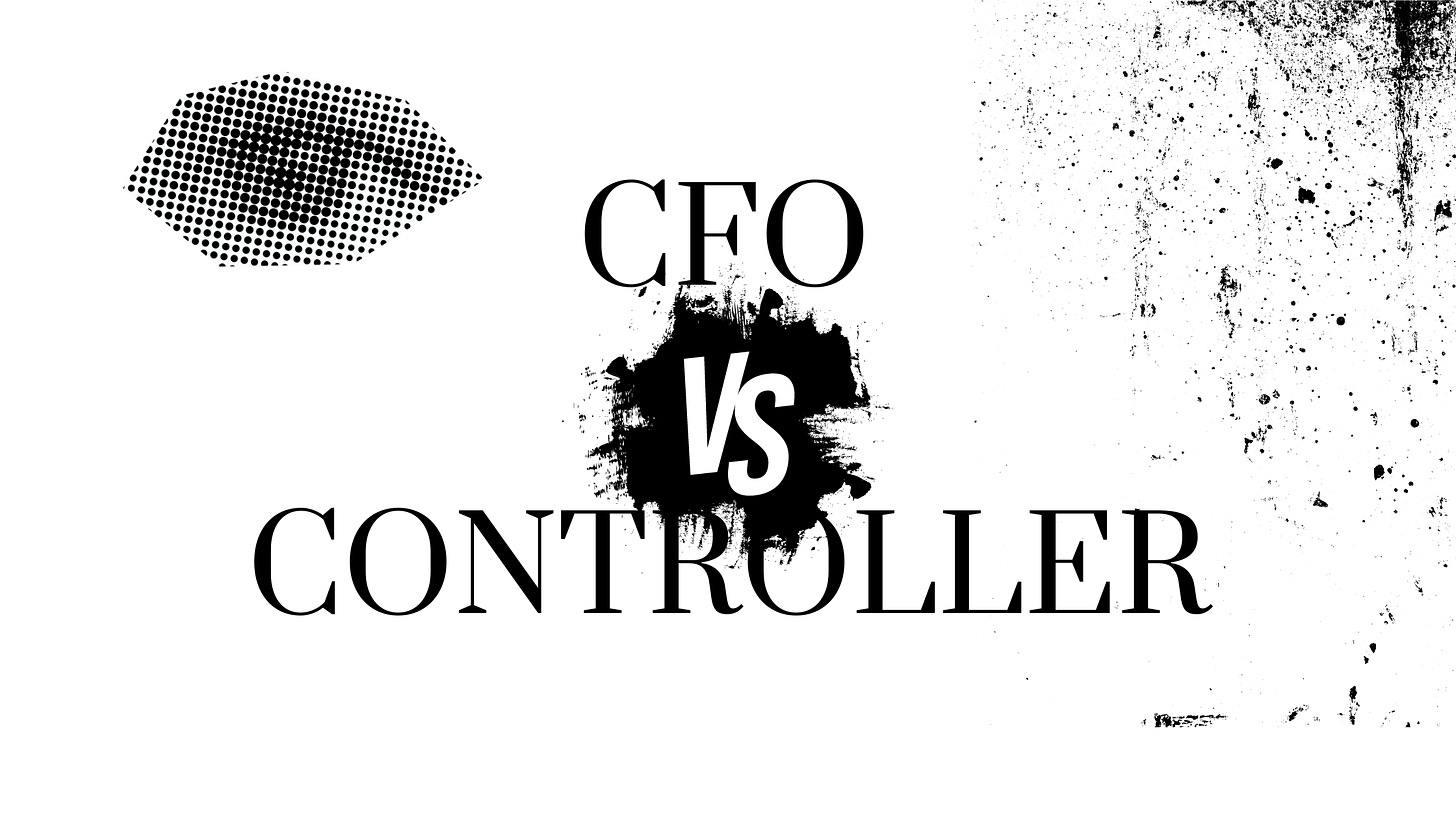In the realm of corporate finance, the roles of Chief Financial Officer (CFO) & Controller are pivotal. While both positions are integral to the financial health and strategy of any company, they differ significantly in their focus, responsibilities, and career trajectories.
Understanding these differences is crucial for those aspiring to excel in the finance sector and struggling in navigating an A++ career in corporate finance.
Role Definitions and Responsibilities
The Role of a Controller
A Controller is primarily an accountant responsible for managing a company's financial records and ensuring accuracy in reporting. The Controller's duties include overseeing the accounting department, managing internal controls, and preparing financial statements. Controllers focus on historical financial data and current financial operations, such as billing, accounts payable, and payroll.
Key responsibilities of a Controller include:
Closing the books: Ensuring all financial transactions are accurately recorded and reported at the end of each accounting period.
Financial reporting: Preparing financial statements that comply with accounting standards and regulations.
Budget monitoring: Ensuring that the company adheres to its budget and identifying any variances.
Audit supervision: Overseeing external audits and ensuring compliance with tax regulations.
Team management: Building and managing the accounting team, typically hiring staff accountants to handle various aspects of financial operations.
The Role of a CFO
In contrast, a CFO is a senior executive focused on strategic financial planning and analysis. CFOs play a critical role in shaping the company's future financial direction and making high-level decisions that impact the entire organization. They are involved in long-term strategic planning, financial forecasting, and investor relations.
Key responsibilities of a CFO include:
Strategic planning: Designing and implementing long-term financial strategies to achieve the company's goals.
Investor relations: Communicating with investors and stakeholders, providing financial reports, and ensuring compliance with investor requirements.
Financial forecasting: Developing and reviewing budgets, forecasting models, and financial projections to guide the company's financial future.
Cross-functional collaboration: Working with various departments, such as sales and product development, to ensure financial alignment with company objectives.
Supervising financial planning and analysis (FP&A): Overseeing the FP&A team to ensure accurate and effective financial planning and forecasting.
Educational and Certification Requirements
Both Controllers and CFOs typically hold a bachelor's degree in accounting, finance, economics, or business administration. However, the educational paths and certifications for these roles can differ.
Educational Path for Controllers
Controllers often hold a bachelor's degree in accounting and may pursue a Certified Public Accountant (CPA) certification, which is highly valued in this role. Advanced degrees, such as a master's in accounting or an MBA, can enhance a Controller's qualifications and career prospects.
Educational Path for CFOs
CFOs usually have a broader educational background, with many holding an MBA or a master's degree in business administration. Certifications such as CPA, Certified Management Accountant (CMA), or Chartered Financial Analyst (CFA) are common among CFOs, with the CFA being particularly valuable for those focused on financial analysis and investment management.
Career Paths and Transition
The career paths for Controllers and CFOs also differ significantly. Controllers typically come from a background in public accounting or internal auditing, where they gain experience in financial reporting and compliance. The transition from Controller to CFO is possible but relatively rare, occurring in about 10% of cases. Most CFOs come from a financial planning and analysis background, where they develop strategic financial skills.
Becoming a Controller
For those aspiring to become Controllers, the focus should be on gaining experience in accounting and obtaining a CPA certification. Controllers often start their careers as staff accountants or auditors before moving into management roles.
Becoming a CFO
Aspiring CFOs should focus on strategic financial roles, such as FP&A or investment banking. An MBA is highly valuable, and gaining experience in strategic planning, financial analysis, and investor relations is crucial. CFOs typically spend five to seven years in strategic financial roles before moving into senior executive positions.
Conclusion
While both Controllers and CFOs play vital roles in a company's financial management, their responsibilities, educational requirements, and career paths are distinct. Controllers ensure the accuracy of financial records and manage current financial operations, while CFOs focus on long-term strategic planning and financial leadership. Understanding these differences can help professionals navigate their careers in corporate finance and achieve their desired roles.




